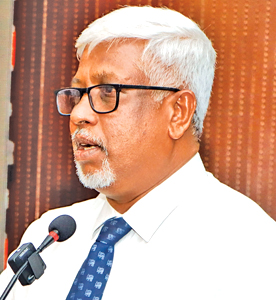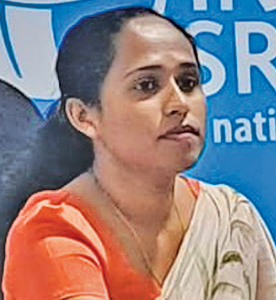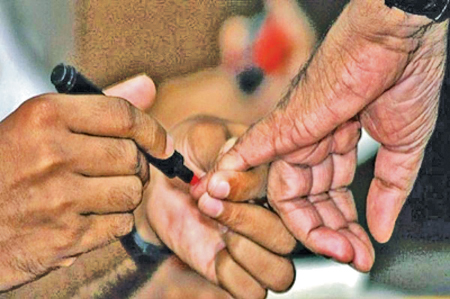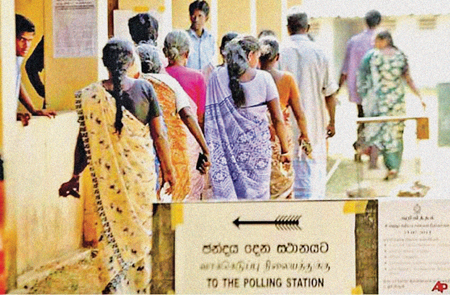“Elections belong to the people. It’s their decision. If they decide to turn their back on the fire and burn their behinds, then they will just have to sit on their blisters.” – Abraham Lincoln, the 16th President of the United States.
 As the clock ticks closer to the D-Day, political campaigns are in full swing, and much has already been said and done to tap into the country’s different vote bases in a bid to secure the hot seat of executive presidency for the next five years.
As the clock ticks closer to the D-Day, political campaigns are in full swing, and much has already been said and done to tap into the country’s different vote bases in a bid to secure the hot seat of executive presidency for the next five years.
A record 38 candidates are in the election fray, waxing eloquent about themselves and their aspirations if elected. Some of the promises made on election stages may recall one of school-time essays on “If I were President, I would…”, given how dreamy and magical they seem compared to the known realities of the country.

Election Commissioner General Saman Sri Ratnayake
‘Presidential Election 2024’ is anything but ordinary. This time, the election race has expanded beyond the familiar dual showdown, making it a truly unpredictable battleground. More importantly, this is the first election since the unprecedented economic crisis, which dragged the country to its knees and spiralled into a political storm that led to the ousting of a sitting President, a first in the country’s post-independent history.
In every aspect, this election comes at an important juncture, and its outcome will shape the future trajectory of the island-nation. About 17.1 million eligible voters will head to the polls in less than a week to cast their votes for the leader they trust to steer the country through this critical time.
Let that be an informed decision free of undue influence. A 48-hour cooling-off period before election-day has been facilitated by the election law for this reason.
Space to reflect
After weeks of fiery speeches, spirited debates, and a flood of political advertisements, the curtain will fall on all forms of election propaganda at midnight on Wednesday (18). This period of silence is both deliberate and essential to preserve the sanctity of the democratic process and ensure voters have the space to reflect without manipulation.

National Coordinator of the Programme for Protecting Public Resources, TISL, Thushanie Kandilpana
According to the media guidelines released by the Election Commission on July 26, 2024, the “silent period”, which begins two days before the election day, lasts until the election results are announced. During this time, no one is allowed to run any advertisements or activities that promote or criticise any political party or candidate.
However, public meetings that were held the day before the silent period starts can still be shown on radio and television news bulletins on Thursday (19), but only once. Similarly, newspapers can publish reports about final-day public meetings, but they must ensure that no party or candidate gets special treatment.
Likewise, the candidates or their supporters must refrain from posting or sharing any messages on social media that could sway public opinion. These restrictions are in place to provide a breath of fresh air for the voters, allowing them to digest all the information they have gathered throughout the campaign season, process their thoughts peacefully and make a clear, informed choice without being distracted from the noise of political campaigns.
“The silent period is for the voters to ponder the candidates’ track records and policies without being overwhelmed by last-minute pressure and urgency of electioneering. If any candidate disrespects this law, that itself speaks volumes about him. How can you expect the country’s law and order to be protected under an Executive who breaks the law? The voters must be thoughtful enough to reject such candidates. Candidates who engage in such unlawful activities to beg votes only demonstrate their incompetency,” Election Commissioner General Saman Sri Ratnayake told the Sunday Observer.
Last-minute pressure

Your vote is your power
Ratnayake said the Election Commission would closely monitor media behaviour during the silent period, as well as other election law violations, such as distributing handbills and putting up posters just before the election-day.
“The offenders will be dealt under the law, but laws alone are not sufficient. The silent period is a communal responsibility to ensure the fairness and the integrity of the election. Legal actions taken after the election will be of little help to prevent the harm caused by last-minute election ruses to hoodwink the public. Many of those instances are not due to any ignorance of the law,” he said.
Acting Police Media Spokesperson Deputy Inspector General (DIG) Ruwan Gunasekara, in a recent interview with a private television channel, emphasised that the law pertaining to the 48-hour silent period would be strictly enforced during the Presidential polls. He said mobile patrols would be deployed across the country to take swift actions against election law violations.
Reports of violations during the period of calm are not uncommon in Sri Lankan election history. One may recall how social media platforms like Facebook were used to continue campaigning even after the silent period had begun during the 2020 Parliamentary Election. The Election Commission flagged those violations and reported them to the platforms involved, but enforcement proved difficult.
In the run up to the 2019 and 2015 Presidential Elections, certain media outlets were accused of airing advertisements and broadcasting content that indirectly promoted a leading candidate, even during the silent period. The Election Commission issued warnings and raised concerns, but decisive legal actions were hard to find.
Moment of quiet contemplation

Each vote becomes a whisper that will shape the nation’s future.
The election watchdog groups have highlighted the importance of taking immediate preventive action against any eleventh-hour attempts to improperly alter or manipulate voter opinions.
“As a safeguard for democracy, the silent period ensures that every vote cast is thoughtful, deliberate, and free from undue influence. In previous silent periods, we have seen instances of social media propaganda including smear campaigns, and news bulletins and media programs which indirectly promoted political parties or candidates. We have also seen last-minute poster campaigns, house-to-house canvassing and the circulation of chits with the symbol or number of a candidate.
“Such incidents may happen again, but this time around, we are also seeing positive development when it comes to election law enforcement. The police have been fully supportive of the Election Commission despite the absence of an Inspector General of Police (IGP), and have responded quickly to complaints and information received. Therefore, we can expect a more conducive election atmosphere this time compared to the Presidential polls in 2019 or 2015,” National Coordinator of the Programme for Protecting Public Resources, Transparency International Sri Lanka (TISL) Thushanie Kandilpana, told the Sunday Observer.
Let the silence fall across the nation and cool off the election fever that has reached a new high as campaign trails wind down. Focus on what truly matters—your vote, which will soon shape the future of the country and its 22 million people—during this brief window of calm. The stakes could not be higher in this election, as the outcome will determine how Sri Lanka navigates its recovery, rebuilds its institutions, and restores faith in governance.








